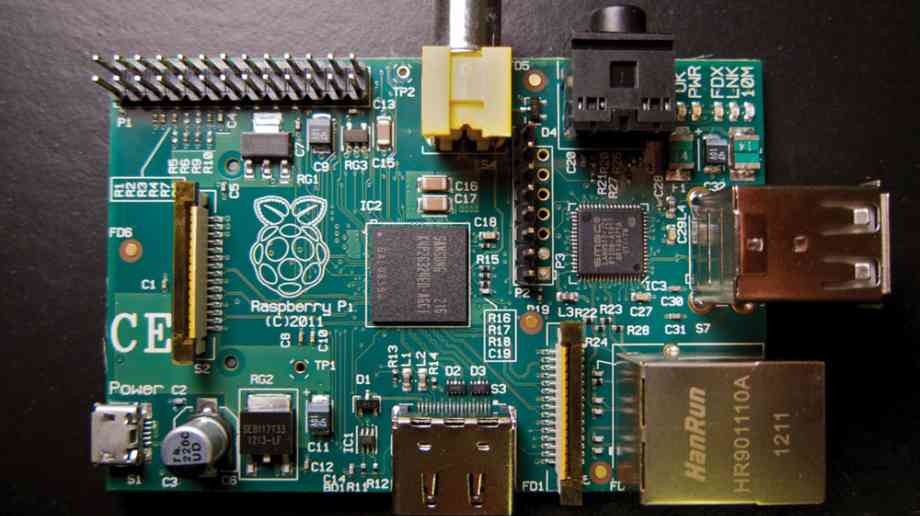
Are you fluent in coding?
For many, coding may seem an indecipherable language spoken only by technology specialists, but today children as young as five are learning to code. FutureLearn’s head of content, Nigel Smith, talks about how a collaboration with Raspberry Pi is enabling teachers to make this language accessible to all
Advancements in technology and the attitudes and expectations of digital natives are pushing the edtech market forward; it’s enabling people from all backgrounds and locations to access education.
Basic level courses, degrees and even postgraduate qualifications are now available to online learners across the globe. But it’s not only universities, schools and institutions that are dipping into the online learning toolkit, corporates and organisations are following suit too; our research with Parthenon-EY and the Open University shows that 80 per cent of employers who conduct corporate training would consider conducting this through MOOCs (massive open online courses).
In effect, the edtech market is making things possible that simply weren’t before. Our partnership with Raspberry Pi illustrates just how far the market has come as Raspberry Pi uses the FutureLearn platform to reach teachers on a global scale, giving them the skills they need to teach our youngest generation how to code.
Giving control to the learner
Enabled by the technology revolution, the education landscape is changing and steadily marking its territory online. As digital natives grow in numbers, it’s clear to see how their expectations are impacting the way we live and work today.
They expect to be able to access information from any location and any device at their own convenience; indeed, the screen has now embedded itself into our natural habitat. And they also expect to be able to have more control over their lives, even in the workplace, with flexible and remote working a given nowadays.
With that in mind, if learners feel secure in this online environment and want or need to be able to access content anywhere and from any device, then surely the education industry also needs to fulfil this expectation? Of course, online learning also has the natural advantage of enabling learners to learn at their own pace, and acquire skills beyond the classroom walls.
Learning for everyone
With online courses, learners are now learning at their own pace to fuel both their academic and professional development, but there is also a wide learner base who, simply put, just want to pursue lifelong learning.
Many online learning platforms offer various forms of accreditation and some offer degree course credit, even complete degrees, fully online. For example, The Open University and the University of Leeds offer credit towards degrees to learners who complete certain online courses, while Australia’s Deakin University recently announced that it would offer fully online master’s degrees this year over FutureLearn.
Online courses can be used as vehicles to enter the world of education or to boost candidates’ CVs. There is also the option though for those who simply want to learn more about a certain topic to satisfy their intellectual curiosity without necessarily seeking out a certificate or qualification.
The Raspberry Pi collaboration
Up-skilling not only applies to professionals in corporate ettings; educators are also invited to build upon their skills. It is vital that teachers are equipped to teach the digital natives of the future as children as young as five are now encouraged to pick up new competencies as coding makes its way into the curriculum.
FutureLearn recently partnered with Raspberry Pi to deliver two courses aimed at enabling teachers to support digital making – creating programmes and systems using digital technology – in the classroom. The two four-week courses will introduce educators to physical computing, as well as an introduction to programming. Teachers, and indeed those with an interest in computing, will be able to make buttons, LED games, use the programming language – Scratch, and develop strategies to identify common mistakes and pitfalls. Both courses will fill teachers with confidence as they see that they don’t necessarily need to be subject specialists to acquire and cascade computing skills.
Raspberry Pi’s decision to complement their live training, known as Picademy, with online courses via the FutureLearn platform, demonstrates the importance of the scale of online learning. While the physical training of Picademy was hugely popular and successful, training substantially more teachers in digital making needed an online solution. Through that online platform, computing knowledge can become more widely accessible and a part of our day-to-day language that everyone should have the opportunity to learn.
Social learning at scale
Raspberry Pi’s decision to collaborate with FutureLearn means that they can really use the social learning element of our platform to their advantage, linking teachers all over the world together. Where users once thought of e-learning as ‘isolated’ and ‘closed-off’, it is now deemed a channel for communication. Online tools are now seen as an outlet of expression and interaction as platforms, such as FutureLearn, are likened to social media networks where discussion is encouraged to enhance the learning process.
Teachers, more than anyone, know that sharing and debating are a tremendous way to learn and consolidate ideas; participating in discussion can help to identify and resolve common areas of difficulty and fill in the gaps where necessary. Conversation opportunities are embedded throughout the course, so that learners can comment alongside the learning material, ensuring contribution to discussion every step of the way.
FutureLearn also enables learners to feel part of the community vibe as they progress with their peers. To some learners and educators, coding is a daunting subject, especially if they have never attempted it before, yet learning alongside others removes the fear factor and encourages wider participation. Teachers can ultimately leverage the community aspect of learning to code by sharing knowledge with their fellow educators far and wide.
Education anywhere in the world
This collaboration is an important one as both FutureLearn and Raspberry Pi strive to deliver learning to anyone, anywhere in the world. In this instance, this shared ethos ensures that we are reaching out to educators across the globe and giving them the chance to upskill to meet the demands of a shifting educational terrain.
More broadly, it illustrates that learning doesn’t have to, and shouldn’t, stop after school or University, or once we’ve secured that first job. In today’s world, learning is a continual process and we’re thrilled to be able to help ensure that educators are ready to equip the next generation of digital natives with the skills they need, regardless of their background or location, through the power of the screen.
Further information
http://www.futurelearn.com
http://www.raspberrypi.org
Latest News
02/10/2025 - 09:31
The Always Active Uniform is a flexible, comfortable school uniform including active footwear, designed to support spontaneous movement and daily activity throughout the school day.
01/10/2025 - 10:23
The Welsh Government has agreed to continue a licensing deal which will give all learners at Welsh state schools free access to Microsoft 365 at school and at home.
01/10/2025 - 09:51
Schools will play a greater role in ensuring every pupil has a clear post-16 destination, with a new approach to a guaranteed college or FE provider place available as a safety net being tested.
30/09/2025 - 09:51
The Chancellor has committed over £10 million in funding to guarantee a library for all primary schools by the end of this parliament.
30/09/2025 - 09:45
New data from Ofqual shows that schools and colleges across England are making progress in cyber security training, but are struggling to recover quickly from attacks when they occur.







